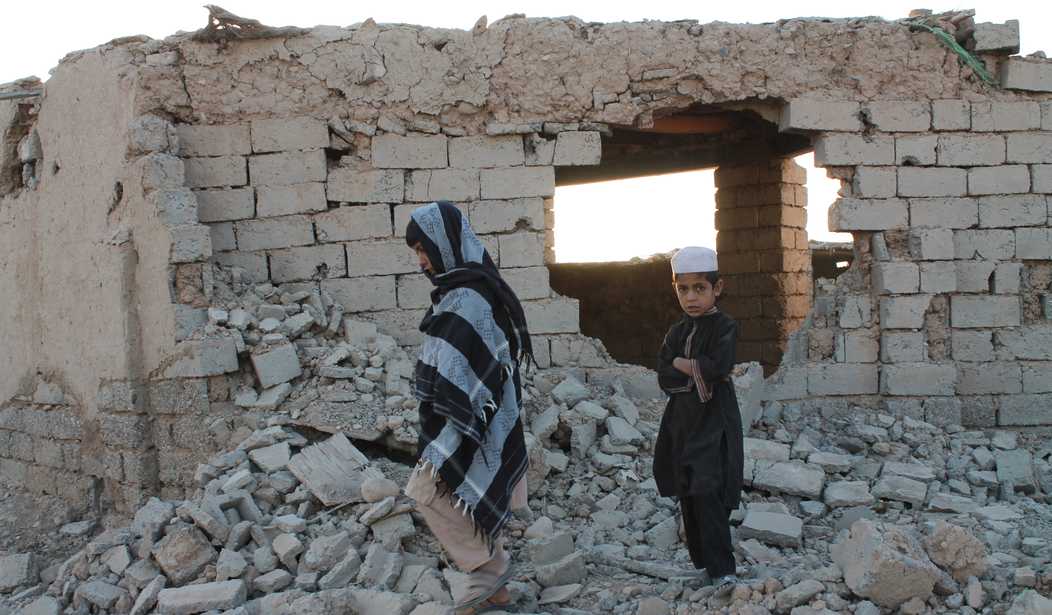In remarks made Tuesday at the annual Intelligence and National Security Summit held just outside the nation's capital, director of the Defense Intelligence Agency Lt. Gen. Scott Berrier and Central Intelligence Agency Deputy Director David Cohen painted a stark picture of how quickly Al Qaeda could again threaten the United States after Biden's withdrawal from Afghanistan.
"The current assessment, probably conservatively, is one to two years for Al Qaeda to build some capability to at least threaten the homeland," said DIA's Berrier.
Not to belabor the point, but the DIA chief believes that Al Qaeda will rebuild and regain the ability to attack the United States within — at most — two years, and maybe as little as one year after Biden's disastrous departure closed two decades of America's presence in the country.
According to The New York Times, Cohen "said the difficult part of the timeline question was to know when Al Qaeda or the Islamic State affiliate in Afghanistan would 'have the capability to go to strike the homeland' before they could be detected."
JUST IN: CIA & DIA senior officials expect Al Qaeda to reconstitute in #Afghanistan in 1-2 years & have capability to threaten US.
— Joyce Karam (@Joyce_Karam) September 14, 2021
DIA’s Scott Berrier and CIA’s David Cohen speaking at #IntelSummit21
Meanwhile, the CIA is tracking "some potential movement of Al Qaeda to Afghanistan," according to Cohen, which raises concern that estimates for how long it will take Al Qaeda to rebuild its network in Afghanistan and develop the ability to attack the U.S. homeland may be as overly-optimistic as the intelligence community's forecasts for Afghanistan's fall to the Taliban.
Recommended
DIA Director Lt. Gen. Berrier participated in the strategic intelligence plenary session during #IntelSummit21. Berrier highlighted partnerships, people, technology & the need for access as key areas of focus, in addition to ongoing challenges like China & Russia. @INSAlliance pic.twitter.com/qUgAdkelya
— DIA (@DefenseIntel) September 14, 2021
Still, the Director of National Intelligence Avril Haines told the same conference on Monday "Afghanistan was not the greatest terrorist threat facing the United States" and that Yemen, Somalia, Syria, and Iraq are "more substantial threats."
The apparent consensus among some of Biden's intel brain trust is alarming not just because it suggests Al Qaeda will be back in a position to attack the United States at home within two years. It's also worrisome because the "over the horizon" capabilities Biden and his Pentagon brass tout aren't guaranteed to provide accurate updates on Al Qaeda's progress. And worse yet, as the world watched last month, the intelligence community reported that a Taliban takeover of Afghanistan would take months but only ended up taking a few weeks as the United States withdrew.
"What interest do we have in Afghanistan at this point with Al Qaeda gone?" asked President Biden during a press conference in August. Secretary of State Antony Blinken, while admitting Biden was wrong to say Al Qaeda was "gone," attempted to reassure Americans that "Al Qaeda's capacity to do what it did on 9/11, to attack us, to attack our partners or allies from Afghanistan, is vastly, vastly diminished."
Blinken may have been right at the time he made those comments on Al Qaeda's "vastly diminished" capacity. But clearly they intend to build back better — and quicker — than the Biden administration expected.
























Join the conversation as a VIP Member